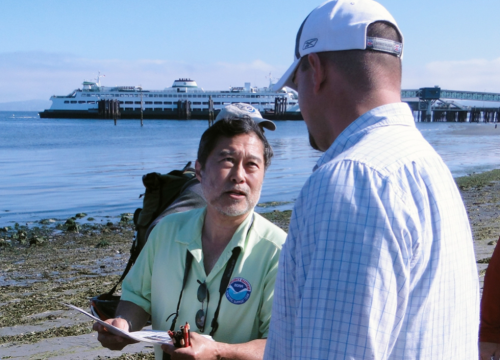Science of Oil Spills Training: Apply for Summer 2017

Feb. 3, 2017 -- NOAA's Office of Response and Restoration (OR&R), a leader in providing scientific information in response to marine pollution, has scheduled a summer Science of Oil Spills (SOS) class in Seattle, Washington, June 19-23, 2017. OR&R will accept applications for the Seattle class until Friday, April 7. We will notify applicants regarding their application status no later than Friday, April 14, via email. SOS classes help spill responders increase their understanding of oil spill science when analyzing spills and making risk-based decisions. They are designed for new and mid-level spill responders. SOS training covers:
- Fate and behavior of oil spilled in the environment.
- An introduction to oil chemistry and toxicity.
- A review of basic spill response options for open water and shorelines.
- Spill case studies.
- Principles of ecological risk assessment.
- A field trip.
- An introduction to damage assessment techniques.
- Determining cleanup endpoints.
To view the topics for the next SOS class, download a sample agenda [PDF, 170 KB]. Please understand that classes are not filled on a first-come, first-served basis. We try to diversify the participant composition to ensure a variety of perspectives and experiences, to enrich the workshop for the benefit of all participants. Classes are generally limited to 40 participants. For more information, and to learn how to apply for the class, visit the SOS Classes page.
